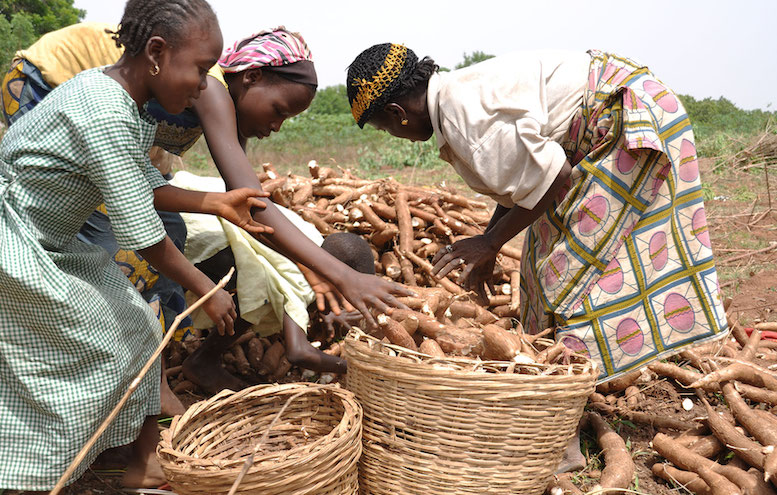
Nigeria Cassava Growers Association (NCGA) has said the cultivation of additional 100,000 hectares for cassava production will increase production to two million metric tonnes (MT) in 2018.
The association said the two million MT would be possible if the Nigerian Incentive-Based Risk Sharing System for Agricultural Lending (NIRSAL) accept and act on their proposal for the dedication of an additional 100,000 hectares for cassava production.
Segun Adewumi, the National President NCGA, said besides the determination of its members to increase production, the move would require funding which was why a proposal to that effect had been sent to the Nigerian Incentive-Based Risk Sharing System for Agricultural Lending (NIRSAL) for approval.
He said: ‘‘We have made a proposal to NIRSAL to aggregate additional 100,000 hectares for cassava production and that will give us an additional two million tonnes of cassava for industrial use in the next cropping season.
That is our target. Large-scale production is a situation where you have about 20 tonnes and above per hectare. We have sent the proposal to NIRSAL but we have not received answers”.
Adewumi asserted that with focus on the large-scale production of the crop, the local production of some industrial cassava derivatives would receive the needed boost.
The NCGA top executive lamented that farmers were discouraged from growing the crop in 2016 due to glut, which occurred after cultivation.
‘‘For many years, cassava farmers have been in glut situation and last year, many people did not plant cassava because of the glut in the produce. We will enter into scarcity, if there is no capacity to off-take what we have planted, it will rot again.
“During the cassava bread fund, we were asked to plant cassava in large quantity but by the time the cassava matured, the Bank of Agriculture (BoA) did not release money to the off-takers who were supposed to buy from us so, our cassava rotted away,” he said.
He urged the government to fashion out sustainable and farmer-friendly policies to provide markets for the entire cassava value chain.
‘‘The government should roll out programmes that will convince the cassava growers that if they plant, they won’t run into the hitch of how to sell it. Once the government rolls out her programmes and we see that we are protected; we will align with it to make sure when the farmers produce, they will be able to sell,’’ Adewumi said.
Cassava production is vital to Nigeria’s economy as the country is a major producer of the commodity. The crop is produced in 24 of the country’s 36 states. The production is conservatively put at 50,000 metric tonnes in 2017.
The average yield per hectare is 10.6 tonnes.









